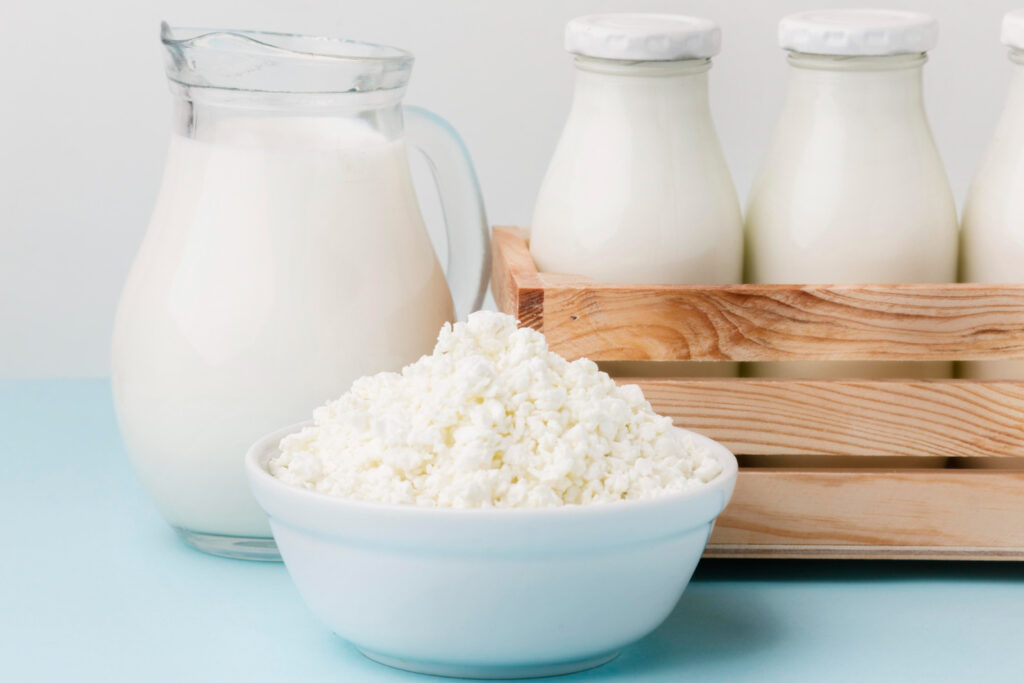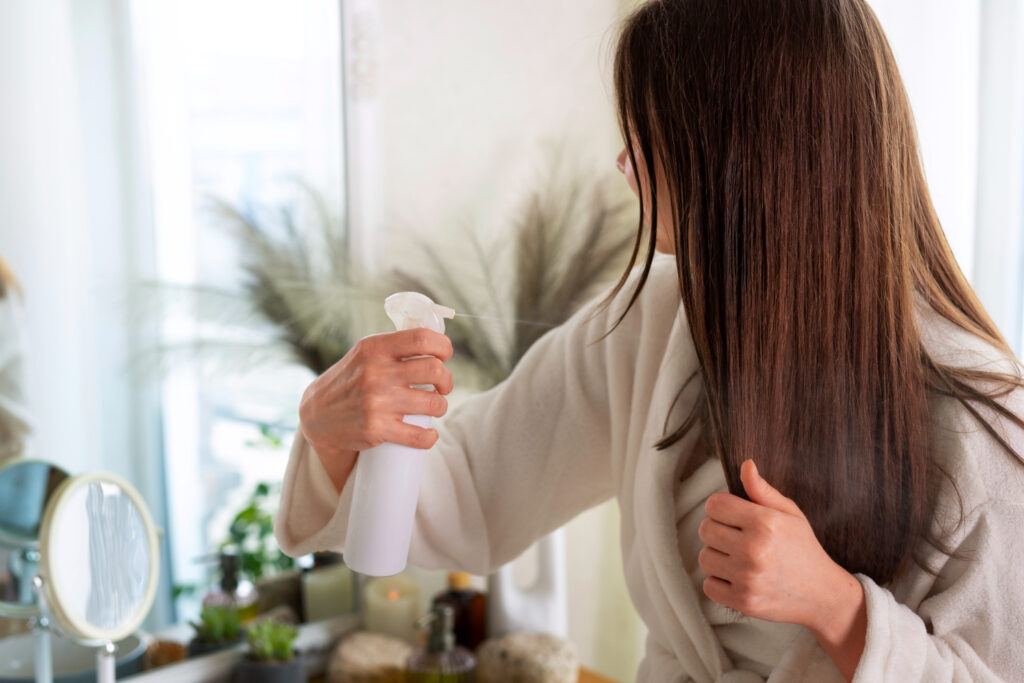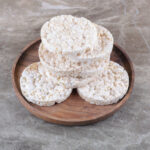
Fast Facts
Origin: Rice water for hair care dates back centuries in Asian cultures
Nutrients: Contains Vitamin B, Vitamin E, Fiber, Magnesium, Manganese, and Zinc
Methods: Can be prepared by soaking, boiling, or fermenting rice
Claims: Anecdotal benefits include shinier, stronger hair and reduced tangles
Safety: Generally safe, but caution is advised for those with scalp inflammation
Usage: Rinse hair with rice water after washing, leave for 20 minutes, then rinse out.
The secret to longer, stronger, and shinier hair might be found in your kitchen cupboard. The use of rice water for hair health dates back centuries in Asian cultures and has gained millions of endorsements on social media in recent times.
But does a rice water rinse truly transform your hair? Let’s explore the facts and fiction with insights from dermatologists Shilpi Khetarpal, MD, and Alok Vij, MD.
How Might Rice Water Benefit Your Hair?
Rice water is the starchy liquid left after soaking or cooking rice. This cloudy liquid contains many nutrients that make rice a staple food worldwide.
How does it help your hair? The starch released from rice acts as a conditioner, according to Dr. Vij. “The starch coats the outer follicle of hair, called the cuticle, and helps prevent the follicles from rubbing against each other and breaking
Rice also contains inositol, an antioxidant that has been promoted as a “hair growth agent,” and various vitamins and minerals that may protect hair from damage. These nutrients include:
- Vitamin B
- Vitamin E
- Fiber
- Magnesium
- Manganese
- Zinc
Possible Benefits of Rice Water
Advocates of rice water claim it can make your hair shinier, stronger, and less tangled. The major allure is its potential to promote hair growth. Historically, rice water is said to have helped women in Japan’s Heian period grow floor-length hair known as kurokami.
In modern times, the town of Huangluo in China, renowned for its long-haired residents, attributes their hair length to the use of rice water, earning a Guinness World Record as the “World’s Longest Haired Village.”
But is rice water really that effective?
Dr. Khetarpal notes, “Anecdotally, there seems to be a lot of potential benefits to using rice water on your hair, but it’s not scientifically proven.” Dr. Vij adds that hair growth is largely genetically determined, though factors like nutrition, age, and overall health play a role. “Haircare practices themselves are usually a very minor component,” he says.
Risks of Using Rice Water on Hair

Using rice water on your hair is generally safe, with minimal risk of damage since it contains no harmful chemicals or additives. However, Dr. Khetarpal advises caution if you have scalp inflammation, as rice water could potentially worsen the condition.
Additionally, not thoroughly rinsing rice water from your hair and scalp might cause irritation.
How to Make and Use Rice Water
Creating rice water is a simple DIY project. Here are three methods:
- Soaking rice in water for 30 minutes to two hours.
- Boiling rice in water.
- Fermenting rice in water for a day or more.
Dr. Khetarpal recommends the shorter soaking method as the most effective. Boiling may reduce some nutrients, and long fermentation could introduce bacteria.
Most recipes suggest rinsing the rice before soaking and straining the final product. Detailed instructions can be easily found online.
To use rice water, simply douse your hair in it after washing, let it sit for about 20 minutes, then rinse it out, as per Dr. Vij’s advice.
Can You Eat the Rice After Making Rice Water?
Absolutely. The rice used to make rice water is still edible and retains its nutrients, benefiting your whole body. Plus, pre-soaking rice shortens its cooking time.
Should you try rice water for your hair? Ultimately, it’s a personal choice. Dr. Khetarpal and Dr. Vij agree there’s no harm in trying this ancient haircare method. “Anecdotal evidence is great, but there’s not a lot of scientific evidence behind using rice water,” says Dr. Vij. “But as I always tell my patients, ‘If something works for you, I can’t argue with that.’”
If rice water isn’t for you, there are other ways to enhance hair growth and health, such as maintaining a balanced diet, using gentle haircare products, and minimizing heat and chemical treatments.
By combining these practices with proper haircare, you can support the health and appearance of your hair naturally
A Quick Review
Rice water, a centuries-old remedy, is hailed for its potential to enhance hair health by making it shinier, stronger, and less tangled. It contains beneficial nutrients like Vitamin B, E, and inositol. Despite lacking scientific proof, anecdotal evidence supports its effectiveness. To use, simply soak, boil, or ferment rice to create the water, then rinse hair post-wash. It’s generally safe but should be avoided if you have scalp inflammation. Try this natural method to see if it works for you!











